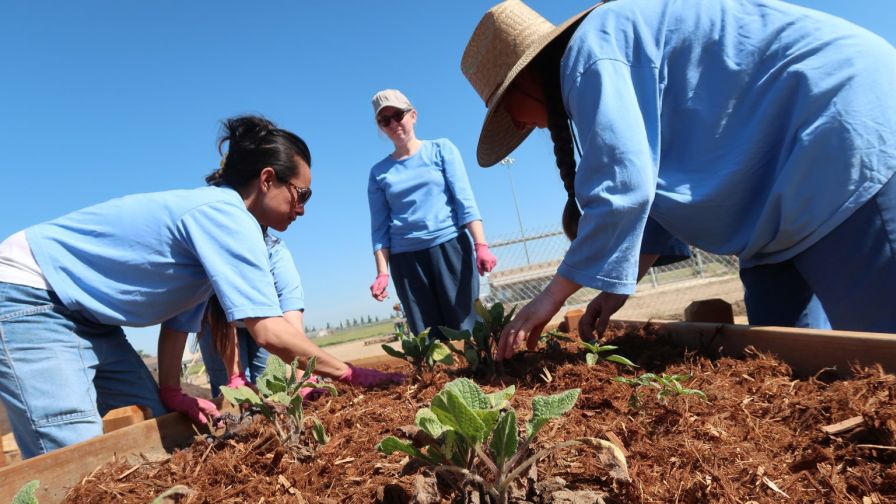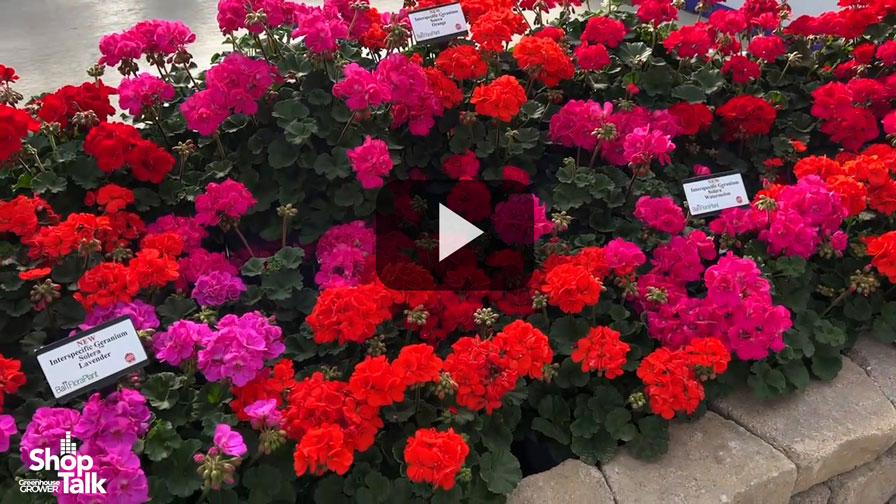Charlie Hall on the Importance of Understanding Horticulture Economics
 Dr. Charlie Hall of Texas A&M University accepted Greenhouse Grower’s Industry Achievement Award during the Medal of Excellence event at Cultivate’22. Virtually every grower in the horticulture industry knows Dr. Hall, whether it’s from his industry presentations, or his in-person or virtual educational focus. Now, here’s your chance to learn even more about him. Greenhouse Grower’s six-part series on Dr. Hall’s legacy kicks off here with a closer look at his passion for numbers, and why he says growers need to understand the market forces shaping their company. Watch for Part 2 next week!
Dr. Charlie Hall of Texas A&M University accepted Greenhouse Grower’s Industry Achievement Award during the Medal of Excellence event at Cultivate’22. Virtually every grower in the horticulture industry knows Dr. Hall, whether it’s from his industry presentations, or his in-person or virtual educational focus. Now, here’s your chance to learn even more about him. Greenhouse Grower’s six-part series on Dr. Hall’s legacy kicks off here with a closer look at his passion for numbers, and why he says growers need to understand the market forces shaping their company. Watch for Part 2 next week!
Greenhouse Grower: You have a unique skill, in that you can make the idea of economics fun and interesting. What makes the topic so interesting to you, and how do you try to convey that to the growers you’re talking to?
Charlie Hall: That’s a great question because economics is not necessarily everybody’s favorite subject. I’ve been doing this formally for 34 years within academia, and I would dare say that I’ve not always been as interesting as people find me today in the early part of my career. Malcolm Gladwell talks about the 10,000 hours that’s involved in perfecting your craft, and I think that that’s part of it is practice. When you’ve done literally thousands of presentations over your career, you have plenty of practice in which to get better at it. I think the other thing is, I really, over the last 20 years specifically, have spent a lot of time thinking about the audience that I’m going to be speaking to, if I were in their shoes, what is it that I would want to hear and what are the things that are interesting to hear. That’s not always easy to ascertain, but it’s important to know what’s relevant to them. I think that seeking of relevancy has afforded me an insight that comes through when I’m speaking. Ever since the Great Recession, people are more receptive to hearing this type of information. Back in the old days, when we were making money in spite of ourselves, I was the token economist on the end of the program. But now I go to keynote because people have a better appreciation for what’s going on economically, and it’s a more interested audience.
Greenhouse Grower: When you talk to growers about important topics such as labor and improving efficiency, there’s also the economic side of things, and making the right decision that’s going to be best not just for the future of the industry, but for their own business. How do you talk with growers through some of those conversations?
Charlie Hall: You have to view it from different lenses. There’s the straight labor reduction that goes along with automation and mechanization. The other side of that is making the job easier for the labor force if you want to be the employer of choice. You have to have the mindset not just of labor costs and reducing labor, but also the quality of working in our business. That enables us to attract workers to our business that we wouldn’t normally. Then there’s just a straight efficiency standpoint, such as how many units per hour can you get accomplished. Certainly we’ve seen increases there as well.
Greenhouse Grower: Why is it important for growers to have an understanding of the macroeconomic forces that are shaping their own operation and the industry as a whole?
Charlie Hall: Let me preface my response by pointing out one thing we’ve developed in the last five years: the index of prices paid by growers. I’m keeping track of the increases in input costs. Obviously the pandemic spurred that demand tremendously, so I get tons of requests for that particular publication. The index of prices paid is a supply-side dimension of the industry. Growers are trying to decide how much of a price increase they need to implement to cover these input costs, and whether their customer is going to be willing to pay what they have to charge in order to make a profit. Those are very critical decisions. In the mindset of growers, that’s a supply side concern that they’re interested in, the cost of their fertilizer and so forth. If growers focus on those fertilizer costs and try to negotiate with their fertilizer dealer to get a nickel off each bag, they don’t gain anything because fertilizer is only 1.5% of the cost of goods sold. They need to focus on labor. That’s one of the reasons they need to be knowledgeable about those input costs.
But when you’re thinking strategically about a business, there’s the internal perspective of the firm, and then there’s what’s happening outside the firm. You can come up with all the resources and generate the capabilities internally to manage all that. But if you’re not positioned correctly in the marketplace, it’s to no end. That’s why knowing about everything that’s happening outside the business, whether from a political, economic, legislative, regulatory, or demographic standpoint, is important. You need to understand what’s happening outside so you can better position your company to compete in that environment. Then you can mix the resources and capabilities to maximize profitability within that environment. There’s two ways to be creative here. You can do things right or you can do the right things. Efficiency is all about doing things right. Effectiveness is doing the right things. You can be very efficient internally, but if you’re not in the right spot in the market, you’re not gaining any progress. That’s why growers need to be aware of all of it.











